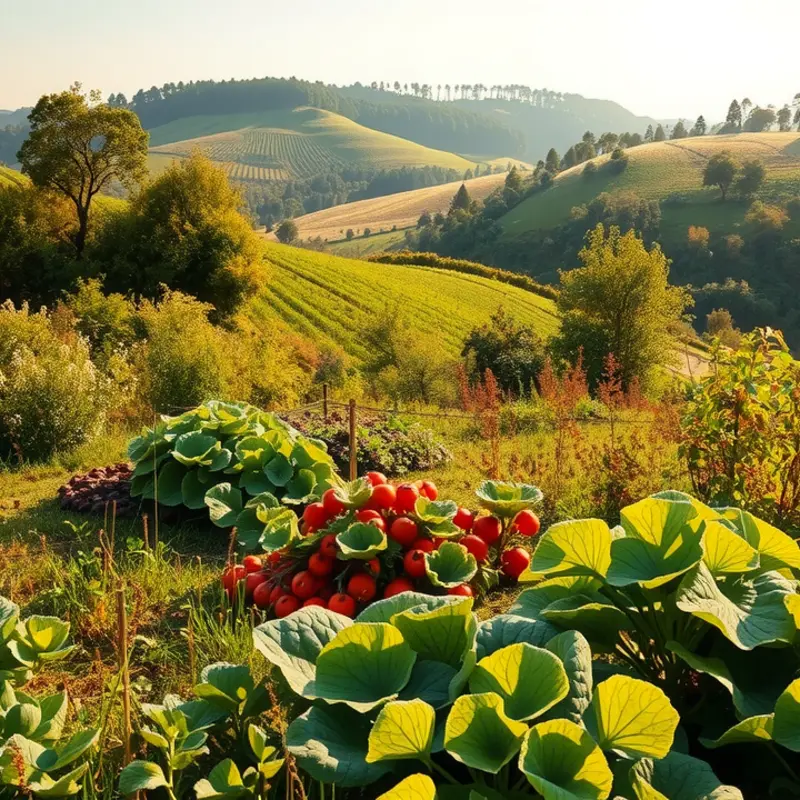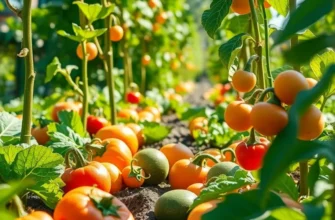Across continents and cultures, vegetarian traditions bloom with vibrant flavors and historical significance. This exploration highlights how various countries incorporate plant-based foods into their culinary identities, showcasing the adaptability and creativity within vegetarian cooking. From fragrant Indian curries to fresh Mediterranean mezes, each region boasts unique dishes that not only satisfy the palate but also reflect cultural heritage and philosophies. Join us in celebrating these delightful vegetarian traditions that nourish body and spirit.
A Taste of the East: India’s Vegetarian Feast

In India, vegetarian cuisine is not just a dietary choice but a profound expression of cultural and spiritual significance. With its roots deeply entangled in historical traditions and religious doctrines, Indian vegetarianism stands distinct globally. A key principle guiding this culinary realm is ahimsa, the practice of non-violence, which influences many Indians to embrace plant-based diets as a way to honor all forms of life.
India’s vegetarian repertoire is a feast for the senses, offering an array of flavors, textures, and colors. Take, for instance, dal, a staple in Indian households. This lentil-based dish is an excellent source of protein and can vary widely depending on the region. North Indian dals might be tempered with cumin, coriander, and garam masala, whereas southern versions could include mustard seeds and curry leaves, showcasing regional spice preferences.
Pan-fried and spiced to perfection, paneer tikka is another celebrated vegetarian delight. Cubes of this fresh cheese marinate in a tangy mixture of yogurt and spices before being roasted, often in a tandoor. The resulting dish is smoky, spicy, and endlessly satisfying, offering a fulfilling alternative to meat-based barbecues.
No exploration of Indian vegetarian cuisine would be complete without mentioning biryani, a rice dish that is a symphony of spices. Vegetarian biryanis are layered intricately with vegetables such as carrots, peas, and potatoes, imbued with aromatic saffron, cardamom, and cloves. The result is a fragrant and visually appealing dish that is on par with its non-vegetarian counterparts.
Spices are the essence of Indian cooking, transforming simple vegetables into complex meals. India boasts a treasure trove of spices like turmeric, known for its anti-inflammatory properties, and asafoetida, which enhances the umami flavor in vegetarian dishes. Mastering these spices, often in combinations known only to specific families or regions, is a cultural art form.
Regional diversity further accentuates Indian vegetarian cuisine, with each state offering unique interpretations of plant-based meals. For a deeper understanding of how regional availability influences dietary patterns, you can explore global food culture dynamics in the Saudi Arabian food customs chapter.
Indian vegetarianism is a testament to the country’s adaptability and respect for life. With its intricate blend of flavors and devotion to preserving tradition, Indian vegetarian cuisine stands as a beacon of cultural richness and culinary sophistication.
Mediterranean Marvels: Vegetable-Centric Dishes

Mediterranean cuisine, with its sun-drenched flavors and vibrant colors, has captured the hearts of food enthusiasts across the globe. At the core of this beloved culinary tradition is an emphasis on fresh, plant-based ingredients. Vegetables, herbs, and olive oil play starring roles, creating dishes that are as nutritious as they are delicious.
Greek salads are a quintessential example, showcasing the simple beauty of ripe tomatoes, crunchy cucumbers, sweet red onions, and briny olives, all bound together by a drizzle of high-quality olive oil and a sprinkle of feta. This dish epitomizes the Greek commitment to fresh produce and the skillful balance of flavors.
Traveling west, the Italian Caprese salad offers a sublime celebration of basil, tomatoes, and mozzarella. With a few basic elements and a splash of balsamic vinegar, this dish exemplifies the Italian philosophy of letting quality ingredients shine without unnecessary embellishment.
In Spain, the chilled, tangy delight of gazpacho offers a refreshing respite during hot summers. This soup, made from fresh tomatoes, bell peppers, cucumbers, and garlic, is another testimony to the Mediterranean’s ingenious use of vegetables. Gazpacho captures the essence of Spanish cuisine’s boldness and its love for simplicity and depth.
The Mediterranean diet is not merely about indulgence but is rooted in well-documented health benefits and sustainability. The diet emphasizes whole grains, fruits, and vegetables, minimizing processed foods and meats. Studies have consistently highlighted its role in reducing the risk of heart disease, diabetes, and certain cancers.
This dietary approach also incorporates cultural exchanges. Olive oil, for instance, is not just a culinary staple but a cultural symbol across the Mediterranean. The Greeks learned from the Egyptians, who cultivated olives, while the Romans spread olive cultivation throughout the Mediterranean basin.
Every dish and ingredient tells a story intertwined with the region’s agricultural heritage. The Mediterranean way of eating is an embodiment of seasonal cooking—celebrating what is locally available and ripe, thereby promoting environmental sustainability. This approach minimizes food waste and encourages biodiversity by valuing traditional crops.
Vegetable-centric dishes not only bring health and sustainability to the table but also foster a connection to the land. The Mediterranean diet’s tangible connection to cultural and culinary traditions transforms every meal into an exploration of history, earth, and flavor.
For those interested in expanding their culinary practices, embracing the Mediterranean diet’s principles offers a path toward a fulfilling, healthful lifestyle. By aligning our eating habits with these time-tested traditions, we can cultivate a deeper appreciation for food’s role in our lives. Embracing simpler ingredients encourages mindfulness in eating. To further explore mindful eating practices and their benefits, visit this resource.
Final words
Vegetarian traditions around the world provide a rich tapestry of flavors, philosophies, and histories. From India’s colorful spice-laden dishes to the Mediterranean’s emphasis on healthy, fresh produce, each culture offers unique vegetarian fare that celebrates not only food but also respect for nature and well-being. Exploring these culinary traditions reveals the universal language of food, uniting us in shared values of health, sustainability, and respect for ingredients. Whether you’re a dedicated vegetarian or just curious about different culinary practices, stepping into these vibrant vegetarian traditions inspires creativity in cooking and appreciation for cultural diversity.








